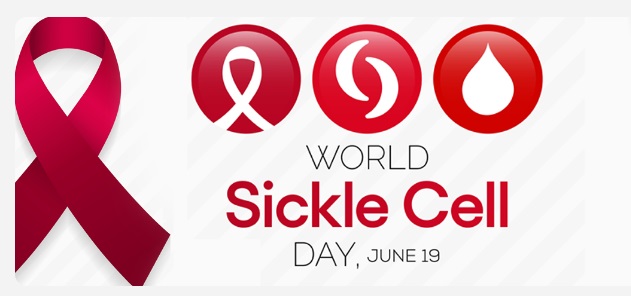World Sickle Cell Day is marked on June 19 every year to raise global awareness about the disease. In a sign of extensive efforts undertaken to reduce the prevalence of the disease in Gujarat, the state government has screened more than 1 crore people under its ‘Sickle Cell Anemia Control’ program launched in the year 2006. Over 17.6 lakh people were screened in the last five years alone, showcasing the Gujarat Government’s commitment to decrease the prevalence of the disease.
Notably, the Sickle Cell Anemia Control Program was launched under the leadership of the then-Chief Minister of Gujarat Shri Narendra Modi in 2006 to reduce the number of patients and control its prevalence. The launch of the initiative made Gujarat the first state in the country to launch a dedicated program on Sickle Cell Anemia. Impressed by its success, the Government of India awarded Gujarat’s Sickle Cell Anemia Control program in the year 2009-10.
Sickle Cell Anemia is a genetic blood disorder that pre-dominantly affects the tribal community in the country. In Gujarat, it is mainly found in the tribal regions from Ambaji to Umargam, spanning across 14 districts namely Aravalli, Banaskantha, Sabarkantha, Bharuch, Chhota Udaipur, Dahod, Mahisagar, Panchmahal, Narmada, Surat, Tapi, Navsari, Dang, and Valsad.
Measures taken by Gujarat Government to Control Sickle Cell Anemia
Chief Minister Shri Bhupendra Patel has made eliminating the disease within the state of Gujarat his top priority. Under his leadership, the Gujarat government has strengthened awareness campaigns and focused on improving diagnosis, treatment mechanisms, and medicine availability.
The Gujarat government has also implemented mass screening programs and prioritized pre-marital genetic counseling and testing to reduce the prevalence of the disease. Additionally, the government has organized extensive public awareness campaigns and community outreach initiatives to educate the population about the disease.
Sickle cell counsellors deployed by the government are actively diagnosing the disease among the residents in tribal districts to prevent its hereditary transmission among the future generations. The counsellors conduct initial investigations including DTT (turbidity test), followed by advanced diagnosis test using High-Performance Liquid Chromatography (HPLC). In addition to diagnosis and prevention, the Gujarat government has also established dedicated sickle cell day-care centers in Valsad and Dang districts of South Gujarat to provide timely healthcare and disease management to the patients.
On the front of social security, the Gujarat government issues disability certificates to sickle cell patients to facilitate their access to various benefits. Alongside ensuring access to essential medicines and treatment facilities, the government from the year 2024-25 has decided to increase the monthly financial assistance from current Rs 500 per month to Rs 2500 per month to the patients from families earning up to ₹ 6 lakh annually.
Prime Minister’s Aim: Sickle Cell Anemia Eradication by 2047
Prime Minister Shri Narendra Modi launched the National Mission for Sickle Cell Anemia Elimination 2047 on July 1, 2023. The central government under his leadership is working towards eradicating the disease before India celebrates its ‘Amrit Kaal’ from the year 2047. The mission aims to screen around 7 crore people across India aged up to 40 years in 17 high-risk states including Gujarat across the country and to provide comprehensive treatment for the disease.
Sickle Cell Anemia: Symptoms and Precautions
Sickle cell anemia is a genetic blood disorder characterized by red blood cells adopting a sickle or crescent shape, impairing blood flow and oxygen transport. This condition leads to various health complications, including fatigue, persistent fever, jaundice, joint and bone swelling, abdominal pain, heightened miscarriage risk in pregnant women, and increased susceptibility to infections, particularly lung diseases. To manage the disease, regular medical check-ups are essential, and patients should maintain hydration by drinking 10-15 glasses of water daily, prioritize rest to minimize stress, avoid alcohol, drugs, and smoking, steer clear of high altitudes and extreme cold, limit physical exertion, and reduce exposure to direct sunlight.
Spreading awareness among people about sickle cell disease is crucial. As sickle cell disease is hereditary, and transmitted from parents to children, it is advisable for young men and women to undergo testing before marriage to prevent its transmission. Considering the seriousness of this disease, the government aims to eradicate sickle cell with a strategy of testing and awareness.


